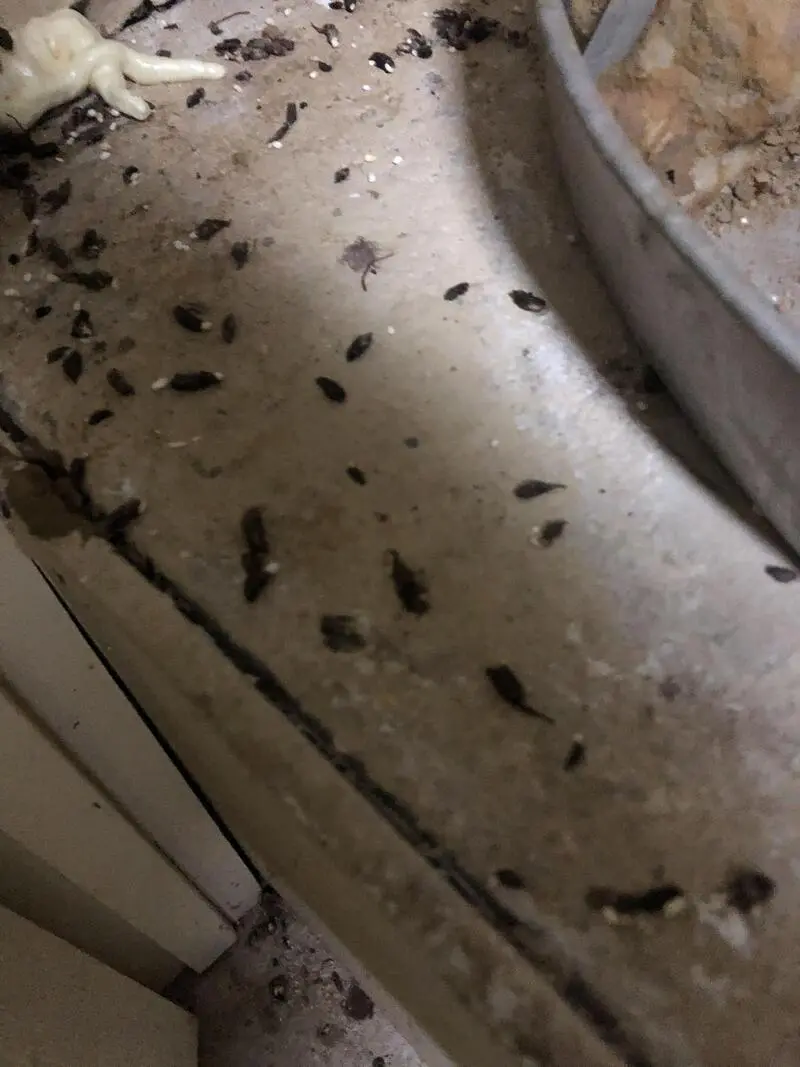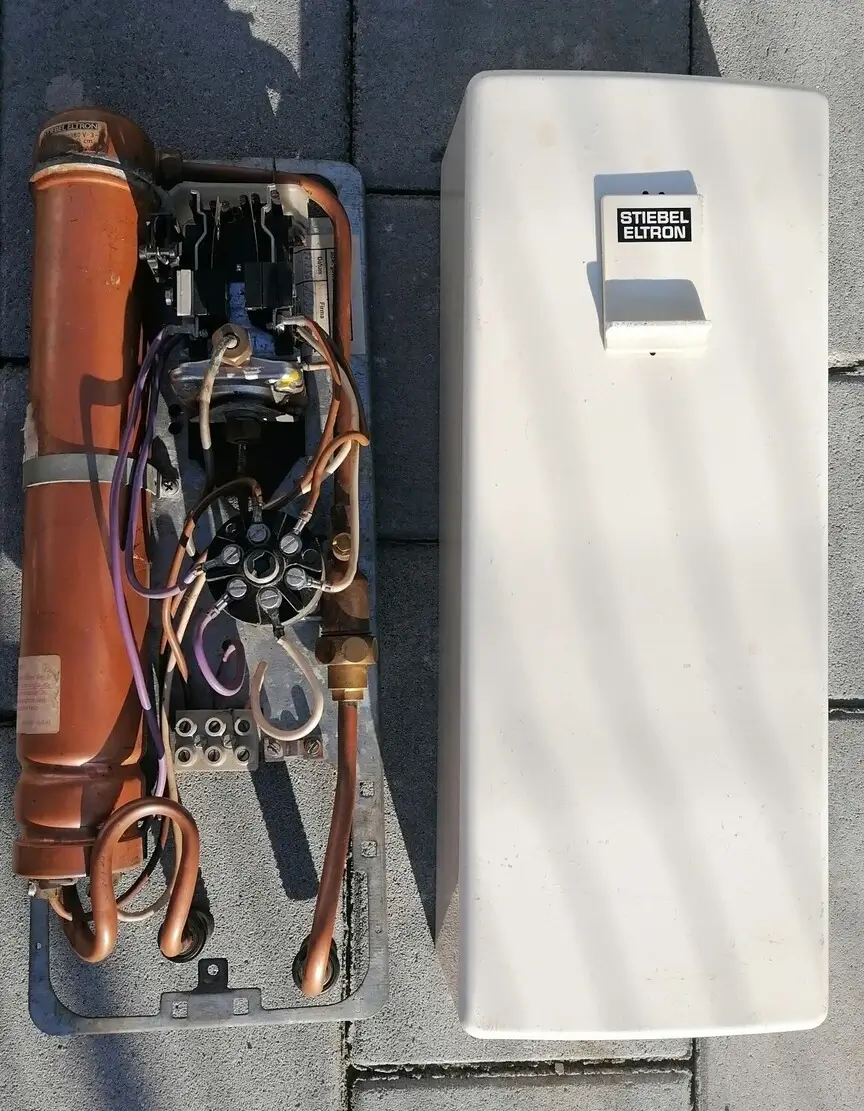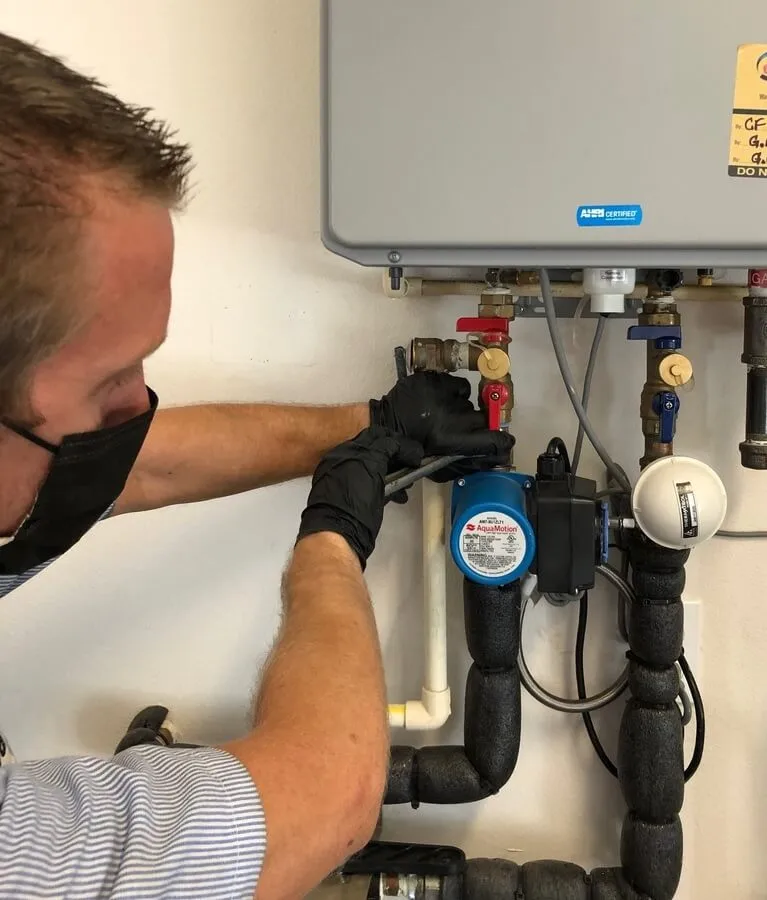Are tiny bugs in hot water tanks frequent guests?
Hot water tanks are essential for our daily lives, providing warm water for showers, dishwashing, and more. However, discovering tiny bugs inside your hot water tank can be quite unsettling and even dangerous.
In this article, we’ll explore how to identify these unwelcome guests, potential risks, and tips on spotting them early and preventing infestations.
Understanding Tiny Bugs in Hot Water Tanks

Discovering tiny bugs in your hot water tank is not uncommon. However, it’s crucial to identify these pests, understand any potential risks, and learn how to prevent their entry.
A simple thing you can do is to take a photograph of bugs that you have in the water heater and compare it with tiny bugs that can be found in the bathroom space.
Bugs that Can Survive in Hot Water Tanks
Certain bugs are remarkably resilient and can thrive in the warm environment of hot water tanks.
Common intruders include:
- Psocids (Booklice)
These tiny insects are drawn to moisture and warmth. While they can survive in hot water tanks, they do not pose a direct threat to the tank’s operation.
- Springtails
These minuscule, jumping insects are moisture-loving pests. They can withstand the warmth of a hot water tank, but their presence primarily indicates excess humidity in the environment.
- Mites
Some mites, such as grain mites, may find their way into hot water tanks. They are small and adaptable, but their presence is more of an annoyance than a direct threat to the tank.
Risks Associated with Tiny Bugs

The tiny bugs found in hot water tanks are not typically a direct threat to the tank’s components. However, they can potentially pose risks in other ways:
- Contaminated Water: Bugs in your hot water tank can contaminate the water supply, leading to potential health concerns if the water is used for bathing or drinking.
- Allergies and Irritation: Some individuals may be sensitive to the presence of these bugs, leading to allergies or skin irritation.
- Potential for Infestation: While the bugs inside the tank are usually not numerous enough to create a full-blown infestation, their presence may indicate an issue with excess moisture or other conditions that are conducive to pests.
Spotting Tiny Bugs Early
Early detection is key to addressing the issue promptly.
Here are some signs that may indicate the presence of tiny bugs in your hot water tank:
- Visible Bugs: If you notice tiny insects when you open the tank’s hatch, it’s a clear sign of their presence.
- Strange Odors or Tastes: Contaminated water may have a distinct odor or unusual taste, which can be a clue that bugs are in the tank.
- Skin Irritation: If you or your family experience skin irritation after using hot water, it may be related to the presence of bugs.
Preventing Tiny Bug Infestations
Preventing tiny bug infestations in your hot water tank involves a few essential steps:
- Regular Maintenance: Periodically inspect your hot water tank and its surroundings for signs of pests. Clean the tank and remove any debris or sediment to create an environment less attractive to bugs.
- Seal Entry Points: Ensure there are no cracks or openings around the tank’s hatch. Seal any potential entry points to prevent bugs from getting in.
- Ventilation: Maintain proper ventilation in the room where the tank is located to reduce humidity and create a less appealing environment for pests.
- Water Source Management: If bugs are entering through your water supply, consider improving water filtration or treatment.
- Consult a Professional: If the infestation persists or worsens, consult with a pest control professional for an expert assessment and tailored solutions.
Can water heaters be at risk of fire because of bugs?

Water heaters are generally not at a high risk of catching fire due to the presence of tiny bugs, as they are not directly exposed to open flames or electrical components that would typically cause fires.
Note: We are supposing that bugs can’t damage wires or make short circuits.
However, the presence of bugs in and around a water heater can indirectly pose certain fire-related risks. Here’s how:
- Electrical Components: While water heaters themselves don’t usually have open flames, they do contain electrical components such as heating elements or gas ignition systems. If bugs create nests or webs in these areas, they can interfere with the proper functioning of these components, potentially leading to malfunctions or electrical shorts. While this is rare, it’s not impossible.
- Insulation: Some water heaters have insulation materials that can be a fire hazard if bugs build nests within them. If these nests are close to hot components, they could potentially ignite, posing a risk of fire.
- Water Heater Location: The location of the water heater can also be a factor. If the water heater is installed in a utility room or space where other flammable materials are stored, the bugs’ presence might indirectly increase the fire risk. For example, if bugs are attracted to the humidity and heat and then spread to other materials in the area, there could be a higher fire risk.
While the risk of a water heater catching fire due to bugs is relatively low, it’s essential to keep your water heater and its surroundings well-maintained and free of any nests, webs, or debris. Regular inspections and preventive measures can help reduce the risk of potential issues arising from bugs in the vicinity of your water heater.
Related: How To Stop Bugs From Coming Up The Drain
Bottom Line
In conclusion, while tiny bugs in hot water tanks are usually not a direct threat to the tank itself, they can lead to water contamination and other issues.
Early detection, regular maintenance, and prevention measures are essential for keeping these unwelcome guests at bay. By taking these steps, you can ensure that your hot water tank provides clean and pest-free water for your daily needs.
Read Next: What To Pour Down Drain To Kill Roaches

Michael Davis is a heating & plumbing expert who currently works as independent contractor in SC. He also writes for Plumbertip.
For almost 10 years he worked on various plumbing tasks across South Carolina.



